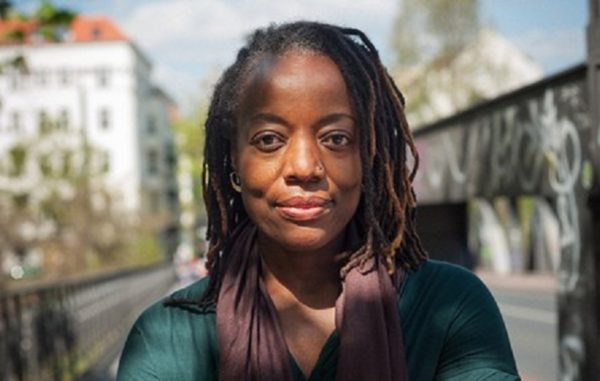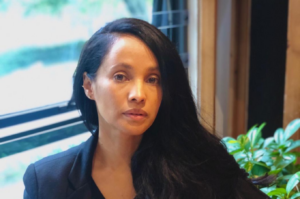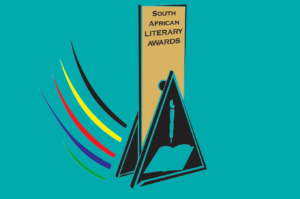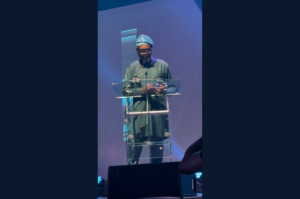
In April, BBC Culture polled literary experts around the world to “nominate up to five fictional stories they felt had shaped mindsets or influenced history,” and got answers from 108 writers, critics, journalists, academics, and translators from 35 countries, who selected novels, folk tales, poetry, and dramas in 33 different languages.
After the final tabulation, three African literary classics made the top 100. Chinua Achebe’s novel Things Fall Apart (1958) was ranked the 5th greatest story to shape the world. Ugandan poet Okot p’Bitek’s epic poem Song of Lawino (1966) came in at No 63. Zimbabwean writer and filmmaker Tsitsi Dangarembga’s novel Nervous Conditions (1988) landed at No 66. Egyptian Nobel Prize Laureate Naguib Mahfouz’s Children of Gebelawi (1967) came at No 76. Our attention has also been drawn to Ethiopia’s 14th century genealogical text Kebra Nagast, which comes up at No 78 and The Eloquent Peasant, an Egyptian folk story at No 91.
Also on the list is Zimbabwean-British Nobel Prize laureate Doris Lessing’s novel The Golden Notebook (1962).
Here is BBC Culture’s summary of their findings.
Homer’s Odyssey topped the list, followed by Uncle Tom’s Cabin – examples of the different ways in which respondents interpreted a ‘world-shaping story’, with the ancient epic having survived generations of retelling, while Harriet Beecher Stowe’s 1852 novel was commended for being “the first widely-read political novel in the US”. Frankenstein, Nineteen Eighty-Four and Things Fall Apart rounded up the top five – which features two female authors (in all, women made up 23 of the top 100 authors).
The most popular authors of the top 100 stories were Shakespeare, Virginia Woolf and Franz Kafka, with three stories each. In among the recognised classics, there are a few texts less well-known globally: Upton Sinclair’s The Jungle, which directly led to the introduction of new federal laws on food safety, and Toba Tek Singh by Saadat Hasan Manto, praised as “a classic short story that translates the trauma of Partition through the post-Partition exchange of lunatics across the India and Pakistan border”.
Among the experts polled is Brittle Paper editor Ainehi Edoro whose top pick was Things Fall Apart, followed by Gabriel García Márquez’s One Hundred Years of Solitude, Fyodor Dostoyevsky’s The Brothers Karamazov, the Arabian One Thousand and One Nights, and Jane Austen’s Pride and Prejudice, in that order. Three of her five picks entered the overall top ten: Things Fall Apart at 5, One Thousand and One Nights at 6, and One Hundred Years of Solitude at 9. On Things Fall Apart, she commented:
“The novel showed readers what an African world looked like when it was not being reduced to canned images animated by racist assumptions. Achebe’s innovation was to change the conventions of modern storytelling so that instead of seeing darkness any time readers looked at Africa, they’d see what every novel was designed to show – a complex representation of life.”
On One Thousand and One Nights, she said: “A timeless work. It gets at the primordial human desire for the story that never ends – which can very easily stand for life that never comes to an end.”
Among other Africans polled is Zimbabwean novelist Tendai Huchu, who picked George Orwell’s Nineteen Eighty-Four, Harriet Beecher Stowe’s Uncle Tom’s Cabin, Mary Shelley’s Frankenstein, Nikolai Chernyshevsky’s What Is To Be Done, and Voltaire’s Candide, in that order. Togolese novelist and journalist Noun Fare also chose Things Fall Apart as No 1 and Malian writer Yambo Oueleguem’s Bound to Violence as No 5.
But Makerere University literature professor Dominica Dipio’s picks predicted the placements of African books in the top 100: Things Fall Apart as No 2, Nervous Conditions at No 3, and Song of Lawino at No 4. Another Makerere University literature professor, Susan Kiguli, placed Things Fall Apart as No 2 and Song of Lawino as No 3. Algerian novelist Mohamed Magani placed One Thousand and One Nights as No 2 and One Hundred Years of Solitude as No 4.
While the African critics and writers went for time-certified classics, Australia journalist Louise Omer played wild, contemporary cards: Omer chose Chimamanda Ngozi Adichie’s Americanah as No 3 and then Elena Ferrante’s The Neapolitan Novels series as No 5.
While it would be expected to be in the top 100, Things Fall Apart‘s placement at No 5 is surprising and infinitely significant. As are the inclusions of Song of Lawino and Nervous Conditions, a favourite in academic circles. Together, they indicate a major shift in the perception of and attachment of relevance to African stories. And this is all the more crucial as the list does not compile “books” or “novels” but stories in their elemental form and ability to influence imagination and thinking. While Chinua Achebe and Okot p’Bitek are no more, Tsitsi Dangarembga is still on the scene.
Congratulations to Tsitsi Dangarembga!
Here is the full list:
1. The Odyssey (Homer, 8th Century BC)
2. Uncle Tom’s Cabin (Harriet Beecher Stowe, 1852)
3. Frankenstein (Mary Shelley, 1818)
4. Nineteen Eighty-Four (George Orwell, 1949)
5. Things Fall Apart (Chinua Achebe, 1958)
6. One Thousand and One Nights (various authors, 8th-18th Centuries)
7. Don Quixote (Miguel de Cervantes, 1605-1615)
8. Hamlet (William Shakespeare, 1603)
9. One Hundred Years of Solitude (Gabriel García Márquez, 1967)
10. The Iliad (Homer, 8th Century BC)
11. Beloved (Toni Morrison, 1987)
12. The Divine Comedy (Dante Alighieri, 1308-1320)
13. Romeo and Juliet (William Shakespeare, 1597)
14. The Epic of Gilgamesh (author unknown, circa 22nd-10th Centuries BC)
15. Harry Potter Series (JK Rowling, 1997-2007)
16. The Handmaid’s Tale (Margaret Atwood, 1985)
17. Ulysses (James Joyce, 1922)
18. Animal Farm (George Orwell, 1945)
19. Jane Eyre (Charlotte Brontë, 1847)
20. Madame Bovary (Gustave Flaubert, 1856)
21. Romance of the Three Kingdoms (Luo Guanzhong, 1321-1323)
22. Journey to the West (Wu Cheng’en, circa 1592)
23. Crime and Punishment (Fyodor Dostoyevksy, 1866)
24. Pride and Prejudice (Jane Austen, 1813)
25. Water Margin (attributed to Shi Nai’an, 1589)
26. War and Peace (Leo Tolstoy, 1865-1867)
27. To Kill a Mockingbird (Harper Lee, 1960)
28. Wide Sargasso Sea (Jean Rhys, 1966)
29. Aesop’s Fables (Aesop, circa 620 to 560 BC)
30. Candide (Voltaire, 1759)
31. Medea (Euripides, 431 BC)
32. The Mahabharata (attributed to Vyasa, 4th Century BC)
33. King Lear (William Shakespeare, 1608)
34. The Tale of Genji (Murasaki Shikibu, before 1021)
35. The Sorrows of Young Werther (Johann Wolfgang von Goethe, 1774)
36. The Trial (Franz Kafka, 1925)
37. Remembrance of Things Past (Marcel Proust, 1913-1927)
38. Wuthering Heights (Emily Brontë, 1847)
39. Invisible Man (Ralph Ellison, 1952)
40. Moby-Dick (Herman Melville, 1851)
41. Their Eyes Were Watching God (Zora Neale Hurston, 1937)
42. To the Lighthouse (Virginia Woolf, 1927)
43. The True Story of Ah Q (Lu Xun, 1921-1922)
44. Alice’s Adventures in Wonderland (Lewis Carroll, 1865)
45. Anna Karenina (Leo Tolstoy, 1873-1877)
46. Heart of Darkness (Joseph Conrad, 1899)
47. Monkey Grip (Helen Garner, 1977)
48. Mrs Dalloway (Virginia Woolf, 1925)
49. Oedipus the King (Sophocles, 429 BC)
50. The Metamorphosis (Franz Kafka, 1915)
51. The Oresteia (Aeschylus, 5th Century BC)
52. Cinderella (unknown author and date)
53. Howl (Allen Ginsberg, 1956)
54. Les Misérables (Victor Hugo, 1862)
55. Middlemarch (George Eliot, 1871-1872)
56. Pedro Páramo (Juan Rulfo, 1955)
57. The Butterfly Lovers (folk story, various versions)
58. The Canterbury Tales (Geoffrey Chaucer, 1387)
59. The Panchatantra (attributed to Vishnu Sharma, circa 300 BC)
60. The Posthumous Memoirs of Bras Cubas (Joaquim Maria Machado de Assis, 1881)
61. The Prime of Miss Jean Brodie (Muriel Spark, 1961)
62. The Ragged-Trousered Philanthropists (Robert Tressell, 1914)
63. Song of Lawino (Okot p’Bitek, 1966)
64. The Golden Notebook (Doris Lessing, 1962)
65. Midnight’s Children (Salman Rushdie, 1981)
66. Nervous Conditions (Tsitsi Dangarembga, 1988)
67. The Little Prince (Antoine de Saint-Exupéry, 1943)
68. The Master and Margarita (Mikhail Bulgakov, 1967)
69. The Ramayana (attributed to Valmiki, 11th Century BC)
70. Antigone (Sophocles, c 441 BC)
71. Dracula (Bram Stoker, 1897)
72. The Left Hand of Darkness (Ursula K Le Guin, 1969)
73. A Christmas Carol (Charles Dickens, 1843)
74. América (Raúl Otero Reiche, 1980)
75. Before the Law (Franz Kafka, 1915)
76. Children of Gebelawi (Naguib Mahfouz, 1967)
77. Il Canzoniere (Petrarch, 1374)
78. Kebra Nagast (various authors, 1322)
79. Little Women (Louisa May Alcott, 1868-1869)
80. Metamorphoses (Ovid, 8 AD)
81. Omeros (Derek Walcott, 1990)
82. One Day in the Life of Ivan Denisovich (Aleksandr Solzhenitsyn, 1962)
83. Orlando (Virginia Woolf, 1928)
84. Rainbow Serpent (Aboriginal Australian story cycle, date unknown)
85. Revolutionary Road (Richard Yates, 1961)
86. Robinson Crusoe (Daniel Defoe, 1719)
87. Song of Myself (Walt Whitman, 1855)
88. The Adventures of Huckleberry Finn (Mark Twain, 1884)
89. The Adventures of Tom Sawyer (Mark Twain, 1876)
90. The Aleph (Jorge Luis Borges, 1945)
91. The Eloquent Peasant (ancient Egyptian folk story, circa 2000 BC)
92. The Emperor’s New Clothes (Hans Christian Andersen, 1837)
93. The Jungle (Upton Sinclair, 1906)
94. The Khamriyyat (Abu Nuwas, late 8th-early 9th Century)
95. The Radetzky March (Joseph Roth, 1932)
96. The Raven (Edgar Allan Poe, 1845)
97. The Satanic Verses (Salman Rushdie, 1988)
98. The Secret History (Donna Tartt, 1992)
99. The Snowy Day (Ezra Jack Keats, 1962)
100. Toba Tek Singh (Saadat Hasan Manto, 1955)
Here is a full list of who voted and their choices.
Here are some voters’ quotes about the top 10.









Ainehi Edoro May 28, 2018 01:00
Hi Prof. Belcher. Thanks for letting us know.